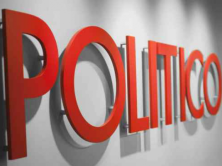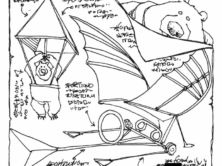
(Credit: NPR)
An NPR article on the Robert Mueller investigation had “sloppy editing” and failed to include the “analysis” label, NPR public editor Elizabeth Jensen reported in December. It was “the second time this month, NPR has had to walk back a published report on the topic,” she noted. Both stories were written by national security editor Philip Ewing. (Previously, Jensen explained Ewing’s article on Donald Trump Jr. required an editor’s note because of an error made in moving too fast.)
Jensen looked most recently at Ewing’s Dec. 15 article, “The Russia Investigation: An Unfinished case Looks Weaker than Ever,” which readers complained about. NPR tweaked the headline, added the label “analysis,” and appended an editor’s note stating: “Editor’s Note: This story has been edited to make it clear that it is analysis and that the allegations of the Trump campaign conspiring with the Russians remain unproven.”
Jensen raised more questions about the article, saying “changes should have gone farther.” NPR didn’t initially add the analysis label or closely edit the story before publication because editors thought it was just “a summation of the week’s news.” To prevent future problems, NPR will have any “analysis” articles from the Washington Desk reviewed by a deputy managing editor, Jensen reported.
“From its framing to its tenuous conclusions, the piece for me remains problematic,” Jensen wrote. For example, Jensen argued the article shouldn’t have said the case “is still unproven,” given that the article also notes Mueller may have information that hasn’t been disclosed publicly. She also flagged “sloppy editing” which suggested Pres. Trump’s opinion on the case is Ewing’s.
“Why is NPR even doing such analyses that suggest one outcome of the investigation over the other (as opposed to recapping the developments of the week)?” she questioned. “Any conclusions at this point are pure speculation, and speculation is at the heart of this piece. Speculation is not something NPR should be trafficking in; there are plenty of others filling that role.”
In response to Jensen’s criticism, NPR told iMediaEthics, “We appreciate the ombudsman’s perspective. Going [forward], all Washington Desk pieces labeled ‘analysis’will be read by a deputy managing editor before being posted.”





